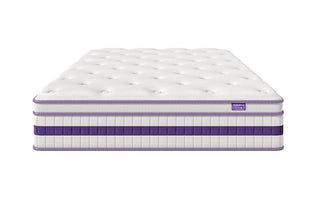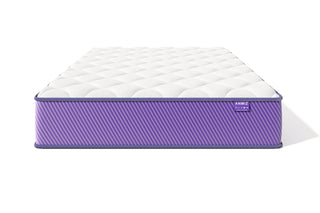Falling asleep easily and waking up refreshed often feels simple in theory, yet many people struggle with consistent rest. What many overlook is how closely Nutrition and Sleep are connected. The food you eat affects hormones, digestion, and the nervous system. All of these play major roles in how smoothly the body transitions into sleep and how restorative rest becomes. When nutrition supports sleep, both mind and body benefit.
Quality sleep relies on more than bedtime habits alone. The nutrients we consume during the day have lasting effects at night. Certain foods promote relaxation, while others stimulate alertness. Understanding this relationship provides a foundation for improving sleep from the inside out. With thoughtful dietary choices, sleep can become more predictable, peaceful, and rejuvenating.
- 1. Nutrition and Sleep Relationship
- 2. Nutrition and Sleep Hormones
- 3. Macronutrients and Sleep Quality
- 4. Micronutrients That Influence Sleep
- 5. Meal Timing and Sleep Patterns
- 6. Hydration and Sleep
- 7. Caffeine, Alcohol, Sugar, and Sleep
- 8. Nutrition and Sleep Across Life Stages
- 9. Food Patterns That Support Sleep
- 10. Lifestyle Factors That Influence Nutrition and Sleep
- 11. When Sleep Problems May Be Nutrition-Related
- 12. Frequently Asked Questions
- 13. Conclusion
Nutrition and Sleep Relationship
The relationship between Nutrition and Sleep involves metabolism, hormones, and brain chemistry. Food fuels every cell, and sleep restores the systems using that fuel. When nutrition is unbalanced, sleep may become fragmented or shallow. When sleep is disrupted, appetite-regulating hormones shift, making cravings stronger the next day. This creates a cycle linking food choices and sleep patterns.
A balanced diet supports neurotransmitters involved in sleep. Serotonin helps regulate mood and contributes to melatonin production. Protein, carbohydrates, and healthy fats each support these chemical processes. The timing of meals influences how these systems synchronize with the circadian rhythm.
Consistent habits create stable sleep patterns. Irregular meal timing, heavy late-night meals, or nutrient deficiencies often lead to restless nights. Recognizing this connection helps build supportive routines that promote restful nights naturally.
Nutrition and Sleep Hormones
Several hormones influence sleep quality. Diet has a strong effect on how these hormones behave.
Melatonin signals the body to sleep. It forms from serotonin, which forms from tryptophan. Tryptophan is found in foods such as poultry, dairy, seeds, and legumes. Without enough tryptophan, serotonin levels may decline, leading to reduced melatonin production.
Cortisol promotes alertness. It should be higher in the morning and lower in the evening. However, stress, caffeine, and sugar can keep cortisol elevated at night. When cortisol stays high, the body struggles to relax.
Insulin also influences sleep. High-sugar meals cause sharp insulin spikes, which may lead to energy crashes. These swings affect mood and nighttime rest. Balanced meals help stabilize insulin for smoother transitions into sleep.
Macronutrients and Sleep Quality
Carbohydrates play a role in serotonin release. Complex carbohydrates such as whole grains and vegetables support gradual serotonin production. Simple sugars may cause sleep disturbances due to rapid spikes and drops in energy.
Protein provides amino acids used for neurotransmitter formation. Lean protein helps maintain stable energy and supports nighttime serotonin to melatonin conversion. Too much protein right before bed may increase digestive activity, which can interfere with relaxation.
Healthy fats support hormone production and nervous system function. Omega-3 fatty acids found in fish, nuts, and seeds support brain health and may improve sleep quality. Balanced consumption works better than extreme restriction.
Micronutrients That Influence Sleep
Vitamins and minerals play crucial roles in sleep-regulating systems. Magnesium promotes muscle relaxation and supports serotonin conversion. Foods rich in magnesium, such as leafy greens, nuts, and beans, support calmness.
Vitamin B6 helps convert tryptophan into serotonin. Whole grains, bananas, and poultry provide supportive amounts. Low B6 levels may reduce melatonin formation.
Iron aids oxygen transport. Low iron levels can contribute to restless sleep and restless legs. Lean meats, beans, and fortified cereals improve iron intake.
Zinc also contributes to neurotransmitter function. Nuts, seeds, and whole grains help support zinc balance, aiding sleep consistency over time.
Meal Timing and Sleep Patterns
When you eat can be as important as what you eat. Large meals too close to bedtime make the digestive system work harder. This may cause discomfort or acid reflux, reducing sleep depth.
Eating dinner at least two to three hours before bed allows digestion to slow. Consistent meal timing also supports circadian rhythm alignment. When meals follow predictable patterns, the body learns to regulate energy peaks and rest phases more effectively.
Evening snacks should be gentle on digestion. Light options with complex carbohydrates and small amounts of protein help the body transition to rest.
Hydration and Sleep
Hydration supports cellular function and temperature regulation. However, drinking large amounts of fluid right before bed may lead to frequent nighttime awakenings. Balancing water intake throughout the day is more effective.
Dehydration can cause headaches, muscle tension, and dry mouth, all of which interfere with sleep. Drinking small, steady amounts of water during the day supports better nighttime comfort.
Caffeine, Alcohol, Sugar, and Sleep
Caffeine blocks adenosine, a chemical that drives sleepiness. Even afternoon caffeine may disrupt nighttime rest. Limiting caffeine after midday supports better sleep cycles.
Alcohol may make you feel sleepy initially, but it disrupts REM sleep. This leads to fragmented and non-restorative sleep. Moderation or avoidance close to bedtime supports healthier sleep architecture.
High sugar intake may cause restless sleep. Balanced meals and mindful sweet consumption help maintain stable nighttime rest.
Nutrition and Sleep Across Life Stages
Sleep and nutritional needs shift with age. Children require more sleep to support growth. Balanced meals and steady hydration help regulate their energy levels.
Teens often experience circadian shifts. Structured meal timing helps stabilize their sleep pattern. Adults need consistent nutrient intake to support long-term hormonal balance.
Older adults may experience lighter sleep. Nutrient-dense meals and reduced stimulants support better nighttime rest.
Food Patterns That Support Sleep
Balanced dietary patterns improve sleep naturally. A Mediterranean-style diet emphasizes whole grains, vegetables, fruits, lean protein, and healthy fats. This approach provides steady energy and supports neurotransmitter formation.
Plant-forward diets may improve inflammation and aid nighttime nervous system relaxation. However, including enough protein ensures proper neurotransmitter support.
Regular meals, moderate portions, and whole-food ingredients support both stable energy and restful sleep.
Lifestyle Factors That Influence Nutrition and Sleep
Stress affects appetite and sleep. Managing stress through breathing exercises, light movement, or nighttime routines enhances both nutrition and sleep quality.
Physical activity helps regulate hormones and reduces evening tension. Exercising earlier in the day encourages natural melatonin release at night.
Light exposure supports circadian rhythm. Spending time outdoors helps reset internal time cues, improving sleep pattern consistency.
When Sleep Problems May Be Nutrition-Related
Sleep difficulties may be linked to nutrient deficiencies, inconsistent meal timing, or stimulant overuse. Keeping a food and sleep journal helps identify patterns. If sleep problems persist, medical evaluation ensures there are no underlying disorders affecting rest.
Consulting a registered dietitian may help address any suspected nutrient deficiencies. This can support neurotransmitter balance and sleep regulation.
Frequently Asked Questions
Q: Can certain foods help me fall asleep faster?
A: Foods containing tryptophan, magnesium, or complex carbohydrates may support relaxation. Light snacks such as oatmeal, yogurt, or bananas can promote calmness before bedtime.
Q: Does skipping meals affect sleep?
A: Yes. Skipping meals may disrupt blood sugar levels and increase evening hunger. This can make nighttime rest more difficult and less restorative.
Q: Is it better to eat a big dinner or a small one?
A: Smaller dinners eaten earlier in the evening are generally more supportive of sleep. Large or heavy meals before bed can interfere with digestion.
Q: Does drinking herbal tea help with sleep?
A: Some herbal teas, such as chamomile or passionflower, may promote relaxation. However, individuals should choose caffeine-free options to avoid stimulation.
Q: What if I wake up hungry at night?
A: A small snack with complex carbs and protein before bed may help stabilize blood sugar, reducing overnight hunger.
Conclusion
The connection between Nutrition and Sleep influences health, energy, and emotional balance. By choosing nutrient-rich foods, maintaining consistent eating patterns, and supporting hormone regulation, sleep becomes more restorative. Improving sleep does not require drastic changes. Instead, steady adjustments in diet and daily habits can greatly enhance rest. Prioritizing nutrition and sleep together creates a foundation for long-term wellness, clearer thinking, and improved mood each day.












